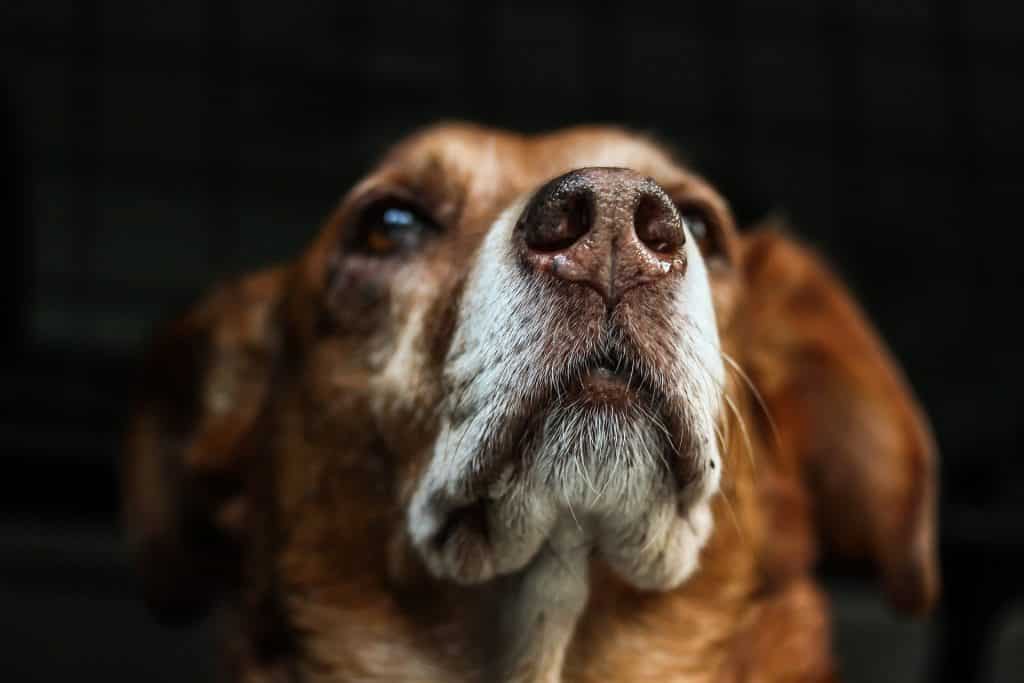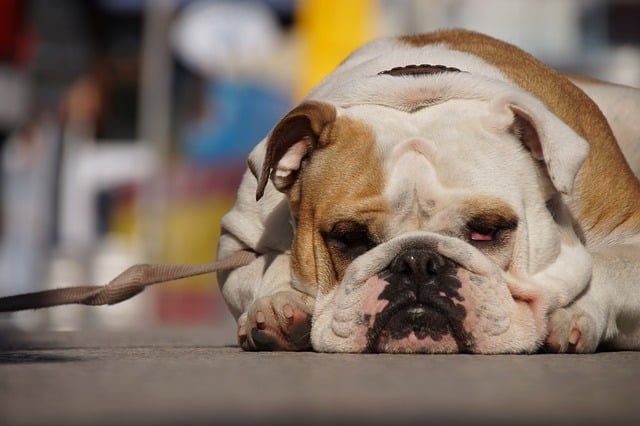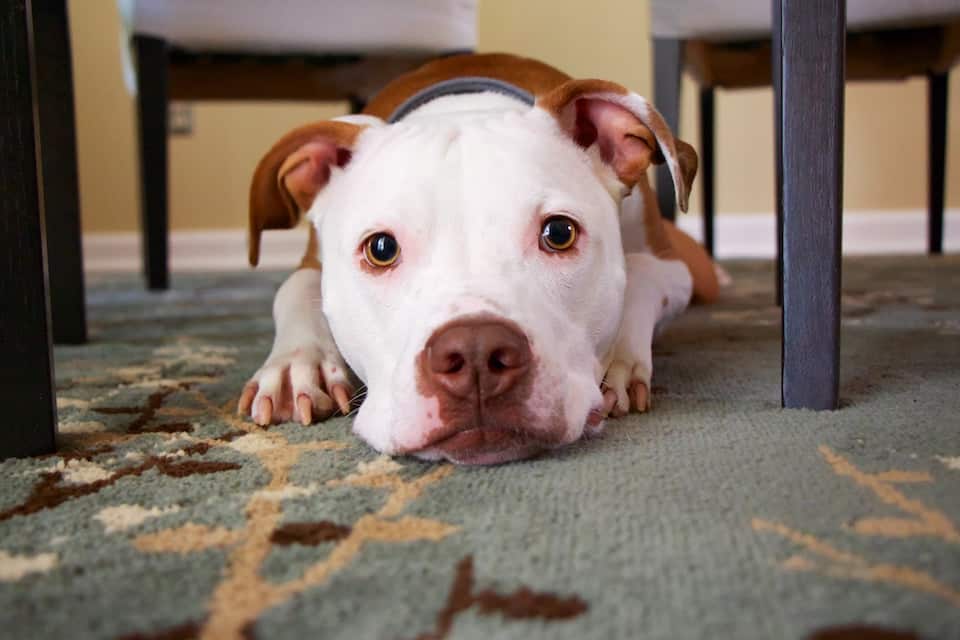- This post contains affiliate links. Read more here.
- Not a substitute for professional veterinary help.
Most dog lovers are fond of receiving a gentle nudge from a cute, wet dog nose. So should you worry when that sniffer dries out?
Dog noses have many functions, mostly to assist the incredible sense of smell that they use to navigate the world. The complex functions of your dog’s nose include:
- draining excessive tears from tear ducts
- sweating through their nose
- a powerful sense of smell that gives them information about the world
Pretty amazing, huh? When a dog nose dries out, contrary to common belief, it doesn’t necessarily mean anything is going wrong. However, dryness may affect those complex sensory functions in your dog’s nose.
Read on to find out why your dog’s nose may be dry and what to do about it.
Why Dog Noses Get Dry
Dogs wet their nose by licking them, so a dry dog nose is likely caused by a lack of licking. My dog’s nose is particularly dry after she wakes up in the morning or from a nap. Breeds such as bulldogs and pugs often have dry noses because they just can’t reach their nose with their tongue to wet it, so the nose can then dry and crack.
Or, like with humans, allergies can dry out your dog’s nose. A dry nose may also be a simple case of a sunburned schnozz, particularly if your pet’s nose is naturally lighter in color.
Less often, a dry doggy nose can be a sign of a fever or disease and is usually accompanied by changes in behaviour, appetite, or energy.
In short, some of the reasons your dog’s nose is dry are:
- Not licking the nose to re-wet it
- Difficulty licking the nose due to facial structure
- Dehydration
- Seasonal allergies
- Newly introduced allergens in the home, especially plastics
- Fever
- Heat exposure
- Sun exposure
- A skin disorder
- An auto-immune disorder
When to Worry about Your Dog’s Dry Nose
The level of hydration in a dog’s nose naturally ebbs and flows. However, there is cause for concern if the normal pattern of wetness and dryness in your dog’s nose changes.
A dry nose is a cause for concern when accompanied by any of the following symptoms:
- Changes in behaviour
- Vomiting
- Diarrhoea
- Lethargy
- Your dog feels hot (how to check your dog’s temperature)
- Cracked or crusted tissue
- Unusual nasal discharge
If you’re worried about your dog’s unusually dry nose, particularly in the presence of behavioural changes or appearance, seek the advice of a vet.
How to Soothe Dry Doggy Noses
There’s no question that a chronically dry nose can become uncomfortable for your dog. Dryness or discharge can cause cracking and rawness.
Water
First of all, hydration, hydration, hydration. Make sure they have access to plenty of fresh water!
It may seem obvious to make sure your dog has water, but the operative word here is “fresh”. I know my dog won’t drink the water from dog bowls at the park, she’ll only drink fresh water at home. Some dogs are just more particular than others.
Allergens
There’s a chance your dog is reacting to a new allergen in your home. Be mindful about introducing new products like treats, bowls, or toys to your dog. If you have plastic dog bowls, switch to ceramic or metal. In general, try eliminating any new household products recently introduced. Also, if you recently added new treats or changed food, switch back to your previous brands to see if food allergies might be the culprit for your dog’s dry skin.
Lotions, Oils, and Salves for Dogs
If you try a salve to soothe your dog’s dry nose make sure it’s edible as they will inevitably try to lick it off. People swear by coconut oil as a soothing agent, you can also try shea butter or almond oil. Alternatively, a salve, lotion, or oil formulated especially for dogs. Lastly, in the case of sun exposure for short-haired or light-skinned dogs, pick up a pet sun cream.
The Bottom Line on Dry Dog Noses
In short, there are many perfectly normal reasons for your dog’s nose to be a little dry. From allergies to sunburns, dog noses are sensitive to changes.
If your dog’s dry nose is accompanied by noticeable changes in eating, energy, or behaviours, see your vet. Or if your dog shows signs of a more widespread problem, read more about dry skin in dogs here.
And feel free to offer your dog some relief in the form of balms, salves, and skin butter. We review our favourite treatments here.




